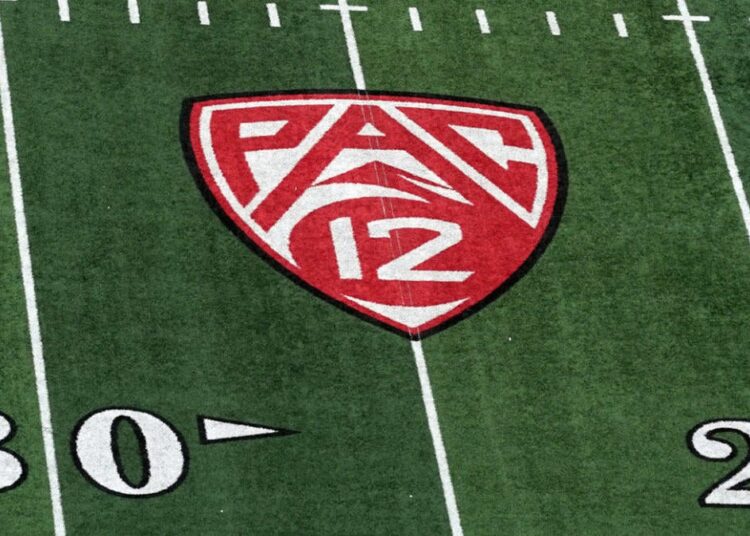The Pac-12 may need to commit to conference expansion first before achieving its compensation target in a new media rights deal, sources with knowledge of the situation tell CBS Sports. In an effort to return to 12 members following the departures of USC and UCLA, the Pac-12 has focused its efforts on evaluating San Diego State and SMU.
Pac-12 commissioner Georgia Kliavkoff has already toured San Diego State, CBS Sports previously learned. He is planning to visit SMU on Wednesday, according to Brett McMurphy.
The Pac-12’s next media rights deal will be heavily reliant on a digital streaming partner. Significantly more than half of each season’s Pac-12 football games will be primarily available via streaming as part of the conference’s next rights deal, sources tell CBS Sports.
Such a ratio is unprecedented for a Power Five conference and for whichever streaming giant becomes the first to more fully embrace college sports. The move would likely upset Pac-12 coaches, athletic directors and administrators who rely on widespread visibility for their games via linear (cable) and network platforms for everything from athletic recruitment to university enrollment.
The Pac-12 has long suffered from substandard distribution resulting after deciding to go with the standalone, wholly owned Pac-12 Networks. A heavy streaming deal would further limit the conference’s visibility.
The next Pac-12 deal is expected to be split between a streaming service and ESPN. With the Pac-12 seemingly unable to reach its compensation target — believed to be approximately $30 million to $35 million per program annually — it appears to be urgent for the conference to expand as a condition of completing a deal in the monetary range it seeks.
Conferences that find themselves in this situation typically negotiate a new rights deal prior to completing a separate deal for expansion. That order establishes value for existing conference members prior to adding new members.
It is not known whether San Diego State or SMU — two Group of Five schools — would receive full media rights shares if the Pac-12 chooses them for expansion. Adding the programs would increase annual Pac-12 game inventory 20% from 75 games per season to 90.
Which streaming giant is in the lead to ultimately carry Pac-12 games is unknown. Amazon was successful last season with its NFL “Thursday Night Football” package. Apple recently signed a 10-year contract with MLS. However, neither platform has shown much interest in college sports to this point. (Industry experts project most major sports will be viewed on streaming in coming years.)
The Pac-12 is only major conference to not yet renew its media rights this cycle. Critics say the league missed its most lucrative window as negotiations drag on.
Not helping matters is that far more lucrative properties are coming available, including UFC, NASCAR, NBA and WWE, the latter of which is seeking a sale to a content provider. .
Despite the loss of Texas and Oklahoma to the SEC, the Big 12 was able to sign a deal late last year that was worth more than its prior contract. The current Pac-12 contract with Fox and ESPN, which expires on July 1, 2024, is valued at approximately $21 million per school not including revenue from the NCAA Tournament, College Football Playoff or bowl games.
ESPN is believed to be interested in the Pac-12 because of the “fourth window” — games that begin after 10 p.m. ET. The network would have a hole in college football broadcast day beginning in 2024 if it does not pick up some Pac-12 games. It already missed out on getting a piece of the Big Ten deal signed with CBS, Fox and NBC.
San Diego State makes sense in Pac-12 expansion. There already is a hole in Southern California given the Pac-12 has lost USC and UCLA to the Big Ten.
The addition of SMU would be non-contiguous (not bordering a state with a Pac-12 school) with the university 820 miles from Colorado, the league’s closest program. However, in at least some small way, SMU might establish a recruiting foothold for the Pac-12 in Texas.
Read the full article here


























